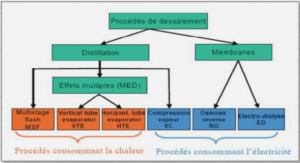Reality ,memory and fiction in vietenam war
Depicting a Sense of Loss of Innocence
The experience of war is a unique one in a lifetime that can entail unsuspected feelings for those who live it. It expresses a failure of mankind to preserve the values that should sustain their living conditions and constitute the bedrock that favors the full blossoming of mankind. Instead of promoting those principles as the sacredness of human life, the avoidance of the horrid misdeeds like killing or rapes, war puts forward destruction and the violation of norms, rules and values. Therefore, its repercussions on its participants are usually devastating to the extent of making them question their sense of morals, whichever the side they fight for and the motives behind their involvement. Indeed, most of the soldiers who find themselves waging war think that they contribute to make the world better by helping to fight the enemy usually considered as the evil. Once confronted with the harsh reality of war, it becomes another story. First, the nature of the relationship they have with the enemy becomes inhuman. The latter is no longer seen as a human being but as a target that must be erased. Those simple truths become instilled in the soldiers‘ mind and even the vocabulary used to define the enemy turns into a set of objects worth throwing into the trash can. To make things worse, the enemy thinks and acts the same way and is ready to retaliate. The rivalry becomes that of cruelty and the outcome is a series of horrible actions performed against each other. Therefore, logic has it that animosity becomes a normal feeling towards each other and violent actions undertaken become quite reciprocal. In this context, instinct of self-preservation prevails over all the rest and that dictates one‘s actions. In his semi-biographical book The Things They Carried, Tim O‘Brien recognizes having gone through that ordeal during his military service in Vietnam. The most striking feeling is the awareness that the harsh realities of life may take over one‘s idealism. An innocent person can turn easily into another one who can behave badly. Even worse, one gradually becomes aware of a sort of personal degeneration capped by a capacity to perform evil and to avail oneself of it. O‘Brien admits: 47 | P a g e Something had gone wrong. I‘d come to this war a quiet thoughtful sort of person, a college grad, Phi Beta Kappa and summa cum laude, all the credentials, but after seven months in the bush I realized that those high, civilized trappings had somehow been crushed under the weight of the simple daily realities. I‘d turned mean inside. Even a little cruel at times. For all my education, all my fine liberal values, I now felt a deep coldness inside me, something dark and beyond reason. It‘s a dark thing to admit, even to myself, but I was capable of evil.52 Sad enough to be noted, the feeling of guilt is not a feeling that sets itself up overnight but it is rather, a process engaged when one first sets foot on the battleground and which is poked up by all the experiences lived throughout that period. It would be a mistake to portend that soldiers are naturally mean because of all the atrocities they commit. In fact, most of them find themselves incapable to perform such deeds in the first place. They usually enlist thinking that they are going to play a part in an undertaking that is destined to make the world more viable. Ideals are always put forward by policy-makers to wage war while most of soldiers are not really concerned with those considerations but feel anyway uplifted by the way it is commonly perceived in societies. It is tantamount saying that it is a brave decision that is praiseworthy and makes one‘s family proud and which is, when lacking, a source of disgrace. The course of actions that follows makes them feel alone when they find themselves noticing the gradual change that war can favor in them. What is more, compromise is almost impossible to find in war. An individual‘s actions are assessed with regard to those of the whole entity he belongs to, especially regarding a soldier in war. He may not agree with the actions undertaken by his squad or troop but he will still be held responsible for the consequences of their deeds. Correspondingly, he feels dragged along by something that is beyond his control that makes him act according to the will of a higher organ of control. However hard soldiers may try to show concern for the lot of those who unjustly suffer in war, their responsibility cannot be dissociated from the ultimate actions of the side they represent. Actually, many soldiers constantly live with remorse related to what they did but also to what they did not do. Sometimes, passiveness itself equates with guilt. To put it bluntly, when one witnesses evil deeds without attempting to stop them, it becomes almost impossible not to feel somehow guilty of tacit consent. It is in this sense that can be understood Paul Berlin‘s prevarications and guilty conscience when he reflects in Going After Cacciato: He would have told them he wanted to harm no one. Not even the enemy. He had no enemies. He had wronged no one. If he‘d known the language, he would have told them how he hated to see villages burned. Hated to see the paddies trampled. How it made him angry and sad…when women were frisked with free hands, when old men were made to drop their pants to be searched, when, in a ville called Thin Mau Oscar and Rudy Chassler shot down ten dogs for the sport of it. Sad and stupid. Crazy. Mean-spirited and self-defeating and wrong. Wrong! He would have told them this, the kids especially. But not me, he would have told them. The others, maybe, but not me. Guilty perhaps of hanging on, of letting myself be dragged along, of falling victim to gravity and obligation and events, but not- not! – guilty of wrong intentions.53 Paul Berlin‘s attempt to take the blame off himself seems almost vain. In Vietnam, all Americans were responsible for the misdemeanors of their comrades because when a Viet Cong got killed or tortured, they would retaliate regardless of the identity of the first American they could catch. The same thing can be said about Americans anytime they craved for revenge. As for intentions, being endowed with good intentions does not spare the individual trapped in the quagmire of war since he cannot act only according to his intentions. Many young American soldiers who went to war did not have bad intentions but quickly found out that it was useless to try to display some values. However, it is not enough to show compassion while one remains inactive. As the saying goes: ―the road to Hell is paved with good intentions‖. It means good intentions do not mean anything significant when they are not accompanied by actual deeds. To plead in favor of those who go through it, they risk being charged with treason if they try to do anything against it. So, it reverts to what was above-mentioned, that is to say they are rather helpless and that feeling exacerbates the case of conscience endured by the concerned ones. In wartime, the notion of collective guilt is also a very important one. Being a witness of terrible actions without doing anything to stop them can engage the responsibility of the passive individual.
The Portrayal of War in Dispatches, Going After Cacciato and The Things
They Carried Literary productions are very telling and reveal a lot about the periods that beget them. Little wonder then to notice all the literary trends and movements that have channeled and catalyzed the talents of many writers. They have been representing the standard bearers of their epochs throughout the history of written literature. From transcendentalism to modernism, in passing by realism, naturalism to name but a few…; literary movements have always taken the shape and also the considerations of periods they correspond to. Besides, these writers have always found the ways to take their inspiration from marking events so as to achieve great works of art. Art is an activity devised by men to show their capacity of creation. They manage to do so by expressing the feelings for which, it is very difficult to give voice. For instance, Pablo Picasso has managed to draw a magnificent portrait of the Spanish civil war through his work Guernica. By doing so, he managed to convey a very powerful message about the horror of the war beyond the aesthetic dimension of the work. Thus, if there is one thing that needs to be borne in mind, it is the fact that literature is an art and the writer has to craft a work that can powerfully convey poignant messages in ways that are indeed accessible. David Galloway points out that vocation of art in general and literature in particular in his work The Absurd Hero in America: Art is a paramount quixotic gesture by which man attempts to give order (at least an order in the same sense of making statements about individual experience or a state of being) to a disordered world. In support of his arguments, Camus cites Van Gogh‘s complaint as ―the arrogant and desperate cry of all artists. ‗I can very well, in life and in painting, too, do without God. But I cannot, suffering as I do, do without something that is greater than I am, that is my life-the power to create‘.‖64 64 David Galloway, The Absurd Hero in American Fiction Upike, Styron, Bellow and Sallinger, University of Texas Press, It is in this sense that it is important to study the portrayal of war to see how these writers have managed to give full expression to their inner world which is full of confusing feelings. They are noticeably the result of an experience almost impossible to relate while the ones who live them crave for sharing those experiences. Some features are then devised by writers and other ones trampled underfoot in order to show the particularity of their experience. An attempt is made by Vietnam War writers to transcribe the real environment of war through an acute framing of the imagery of the war. ‗ 60 | P a g e 2.1 – Framing the Imagery of War Literature is a discipline which is usually the activity that allows to express one’s feelings and to convey what one really feels by transcribing the feelings into literary stories that can be shared to move the readership. It may be stated that feelings and emotions are the shortest way from one man to another. In fact, a man can be far away and still manage to help others decipher what he truly feels through imagery. In this respect, it is a valued process in literature that helps to share the author‘s inner feelings. Actually, some emotions are so strongly felt that it becomes difficult to just define them with simple terms. It is really difficult to have an idea about a phenomenon without being plunged into the surrounding and the setting that constitute its geographical characteristics. Thus, authors strive to put their readers in the convenient environment that give them their fully deserved place. Instead of being profuse in qualifications, they often choose to exhibit the scenery to favor the awareness of the reader who then is able to grasp the emotions that must be felt in such given environments. After all, the most skillful writers are generally known as those who, beyond the dialogue and factual things, are able to show settings that carry the reader to a world completely different from his or hers and that makes the latter evade from his or her daily grind. That art is mastered by most authors who, thereby, manage to move the reader and allow him to feel concerned for the lot of the characters. It is in this respect that O‘Brien is considered as a mastermind in this field. In Going After Cacciato, he manages as early as the first page to capture the murkiness of war. He sets the tone by significantly describing the rottenness of the environment in which his characters evolve in wartime: The rain fed fungus that grew in the men‘s boots and socks, and their socks rotted, and their feet turned white and soft so that the skin could be scraped off with a fingernail and Stink Harris woke up screaming one night with a leech on his tongue. When it was not raining, a low mist moved across the paddies blending the elements into a single gray element, and the war was cold and pasty and rotten.65 O‘Brien brilliantly sets the tone as early as the first page of his book by introducing the reader to a picture of war that defines horror and loathing. He makes the reader aware of what is to be expected in war and the very realization of that can be even more telling than personal war stories that mostly put the stress on circumstances. The portrayal of the warring environment reveals the conditions in which the war was fought and the hindrances those conditions easily constitute for the protagonists. When reading these lines, the least the reader can expect is the progress of a plot fraught with filthy descriptions that reflect the reality of the war. As a matter of fact, Vietnam has nothing to do with the glamorous city of America marked by their skyscrapers, their peaceful landscapes or their borderline beaches. It is a land decorated by paddies, swamps and a deep and spooky forest. To cap it all, the American soldiers fighting in the Vietnam jungles were living in very bad conditions and left to themselves facing a situation unlike all those they have gone through in their lives beforehand. The image of the leech on the tongue of Stink Harris is as disgusting as commonplace in such an environment. The picture portrayed is very remote from the civilized world from which American soldiers were originated. O‘Brien repeatedly focuses on the idiosyncrasies of the Vietnam landscape and its effect on the soldiers. The description he gives in Going After Cacciato matches the portrayal of soldiers he offers in The Things They Carried wherein symbolically represents the burdens carried by American soldiers. He insists that: ―They carried lice and ringworm and leeches and paddy algae and various rots and molds.‖66 By framing the imagery of war, O‘Brien shows that in Vietnam, Viet Congs were not the only enemies of American soldiers. The landscape itself was extremely unfavorable. The numerous bugs that cohabited with soldiers could inflict damage before having to face the North Vietnamese in battles. They are not the only dangers that could stem from the surrounding environment. O‘Brien carries on with his description of the landscape while insisting on the dangers that they involve in Going After Cacciato. This time, he focuses on the waters running in the rivers and paddies where soldiers had often to pass by during the war: ―Don‘t never pee in a paddy,‖ he was once told by a helpful PFC stateside. ―You do, you‘ll get this sickness called elephanted sis. Real bad shit. The viruses live in the paddies, see, so when you pee, the little buggers ‘ll swim right up your urine stream, right up into your prick.‘‘ But Paul Berlin peed when he had to pee, and sometimes he had to pee in paddies: standing kneedeep in the slime; imagining a billion brave viruses paddling hard in search of unpolluted waters‖. ‘67 In fact, danger was looming everywhere in Vietnam and the surrounding landscape constituted the first enemy that American soldiers had to shield themselves from. The illustration of the water that could transmit some terrible diseases was one among many others. The mention of viruses living in the paddies is very illustrative of the threats represented by the environment. It is as well the reason why many authors dealing with the Vietnam conflict do not miss to evoke in their works the inconvenience of the place. The reality of the war made it very difficult for soldiers to avoid being victims of one of those threats. They had to survive in that unknown environment while fighting a ferocious enemy. The fear to be killed by the human enemy was such that they often tended to overlook the very primary danger represented by the landscape. What is Paul Berlin supposed to do, if not pee in the paddies, if there are not any other choices for him? The same concern was raised for all the American soldiers having to go through that peculiar environment to fight an elusive enemy acquainted with the remotest nooks and recesses of the country. The seriousness of the dangers incarnated by those sorts of diseases pushes O‘Brien to re-evoke it in The Things They Carried through the character Norman Bowker: ―I‘m just saying what Jorgensen says. Maybe fuckin‘ polio. Or that weird elephant disease. Elephanted sis hole or whatever.
PART ONE: FROM THE OBSERVER POSTURE TO THAT OF A PARTICIPANT |



